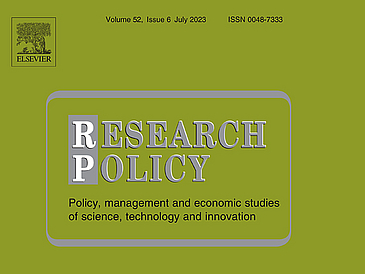Abstract: Generalized trust represents an important regional resource for a firm. It increases human capital, fosters frequent interaction and information sharing, and lowers transaction costs. We provide empirical evidence on the impact of generalized trust among people on firm innovation in German regions. Our observation period ranges from 2004 to 2018. A trust measure is generated by using survey data from the German Socio-Economic Panel, firm-level data is obtained from the Mannheim Innovation Panel and regional data is retrieved from the INKAR database. We apply a 3-level multilevel model, with yearly observations nested in firms, which are nested in regions. Our results show that the relationship between trust and firm innovation has an inverted U-shape. An increase in trust is particularly beneficial for firms inside regions with very low levels of trust, and in small and medium-sized enterprises, especially those that operate in the doing-using-interacting mode of innovation (DUI) with an emphasis on employee freedom and creativity.
Der Artikel kann unter folgendem Link heruntergeladen werden:
https://doi.org/10.1016/j.respol.2023.104813
Der Artikel ist im Projekt Mod-Block-DDR (https://www.uni-bremen.de/mod-block-ddr/page) und dem DFG-Netzwerk „Die Dynamik von Innovationssystemen“ (https://www.uni-bremen.de/dfg-netzwerk-die-dynamik-von-innovationssystemen) entstanden.

